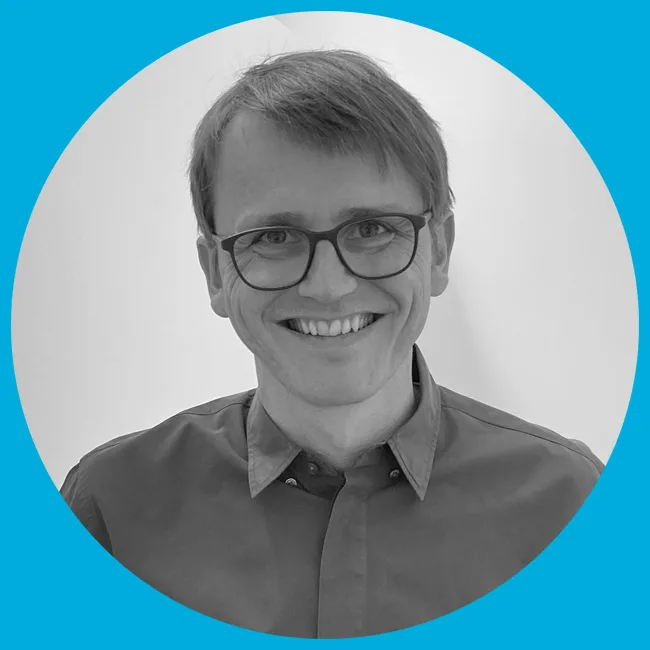We wanted to know: Why did our scientists want to become scientists in the first place? What are they working on, and what do they still want to discover? You can read their answers to these questions and more – including how they motivate their working groups and what they could really do without – as part of this series, which successively introduces some of the people behind the research conducted at Goethe University.
Name: Johannes Völz
Profession: Americanist (literary and cultural studies scholar)
Place of work: Institute of English and American Studies, Department of American Studies
Why did you become an academic/scientist?
Actually, I wanted to become a journalist, but the newspaper editors I wrote for thought I was an academic. When I received an offer for a doctoral position, I resigned myself to my fate.
What are you currently working on?
I am working on two books on populism, or – to be more precise – on the aesthetics of populism. One deals with the USA, the other takes a comparative approach.
What do you still want to find out/discover?
I am fascinated by the ambiguity of democratic culture. It is fascinating, and of course troubling, to observe how democracies – often out of an impulse of democratization – can tip over into authoritarianism. How this process works the other way around, i.e. from the authoritarian back to the democratic, and whether such a change of course can be brought about intentionally at all: those are questions of true significance. They are also at the heart of my work within the ConTrust framework; after all, they directly have to do with the dynamics of trust and distrust.
What does your ideal workday look like?
At its best, research is a creative profession. For me as a humanities scholar, this means that on an ideal day, I grasp a new thought, or I begin to better understand the premonition of a thought. For me, this mostly happens while writing; on lucky days also in conversations with students and colleagues.
What could you easily do without in your daily work?
Administrative stuff, which unfortunately makes up what feels like 75 percent of the job.
What I like about my job is…
…the surprisingly large number of ideal workdays.
To me, Goethe University Frankfurt is…
…a place where you can set things in motion.
What should society know about your research? Are there common misconceptions, and if so, which?
Many people believe that literary and cultural studies are reserved for the ivory tower or merely concerned with embellishing a hard reality – because the knowledge produced here cannot be directly applied in a manner that enhances productivity or solves immediate problems. At the same time, it is blatantly obvious that we live in a society that communicates nonstop both with and about itself – and not just to exchange information, but to permanently design and redesign itself. In order to understand how this happens – how things become sayable and imaginable, and how they are banished from the realm of the sayable and imaginable – we urgently need the humanities.
Which famous personality would you like to swap days with?
I would not like to swap with anyone. But I would like to exchange ideas with one person or another, for example, Stevie Wonder, Wayne Shorter, and Hannah Arendt.
How do you get your mind off research?
By road biking. Due to an eye disease, now mostly on a road tandem. To the drivers out there: Please keep your distance, and on downhills please let us go ahead! Sorry.
Prof. Dr. Johannes Völz is a member of the ConTrust cluster initiative. The cluster project explores the interplay of trust and mistrust in crisis and conflict situations.
More information on Prof. Völz’s research topics is available here.









